|
Our friend Julia Tulke reflects on the phenomenon of documenta 14 and the opinions of this widely criticised spectacle as seen on the walls and other surfaces of Athens. Re-posted with kind permission from: http://aestheticsofcrisis.org/2017/sincerely-the-indigenous/ In the summer of 2016 a stenciled slogan began appearing sporadically in public squares of Athens: “Dear Documenta, I refuse to exoticize myself to increase your cultural capital,” signed “Sincerely, the Indigenous.” Though small in scale and modest in distribution, the work gestures towards the contentious relationship between the autonomous modes of cultural production that have been fostered by the ongoing state of crisis in Greece, and the institutionalized contemporary art world. It articulates the widely shared skepticism about the sincerity of Documenta 14’s guiding theme Learning from Athens. For the organizers, looking towards a city that has been at the epicenter of the European financial crisis for years was meant as a gesture of solidarity and an intervention into mainstream discourses of the crisis. As head curator Adam Szymszcyk describes in a recent interview with Artforum: One of the reasons to work in Athens […] is precisely to make the exhibition in a place where you can see how problematic things are at the moment, and how much worse they may soon become—though not, naturally, to simply induce passive spectatorship. Our rubric “Learning from Athens” emphasizes an idea of active exchange—not an extraction but rather a distribution of knowledge that propagates outward, reconfiguring the relationship between those who speak and those who are spoken about. This narrative, however, has been met with considerable criticism. Since its opening in April 2017, Documenta 14 has been posited as “a form of German cultural imperialism, or misery tourism” and accused of perpetuating exploitative patterns of “colonialism and exoticization.” The organizers also faced criticism for failing to adequately involve the local art scene of Athens, for being complicit in precarious employment schemes, and for failing to commit to a solidary stance towards the tens of thousands of refugees stuck in Greece under precarious conditions. One of the harshest critics of Documenta has been former Greek finance minister Yanis Varoufakis, who recently explained that: The point is not that they came but rather how they came to Athens, whom they went to bed with (metaphorically), and how they used a seemingly progressive left-wing critique of what is happening in Greece to willingly or unwillingly propagate the very process that is causing the country’s crisis. In the name of seeking solutions they became part of the problem. Much of the dissent with Documenta 14 has played out at the very street level, with critical slogans, stencils, and interventions appearing all over the city, most of which seem to be done by anonymous artists or collectives. Below is a collection of some of the most remarkable responses to Documenta 14’s contentious manifestations in the city of Athens.* 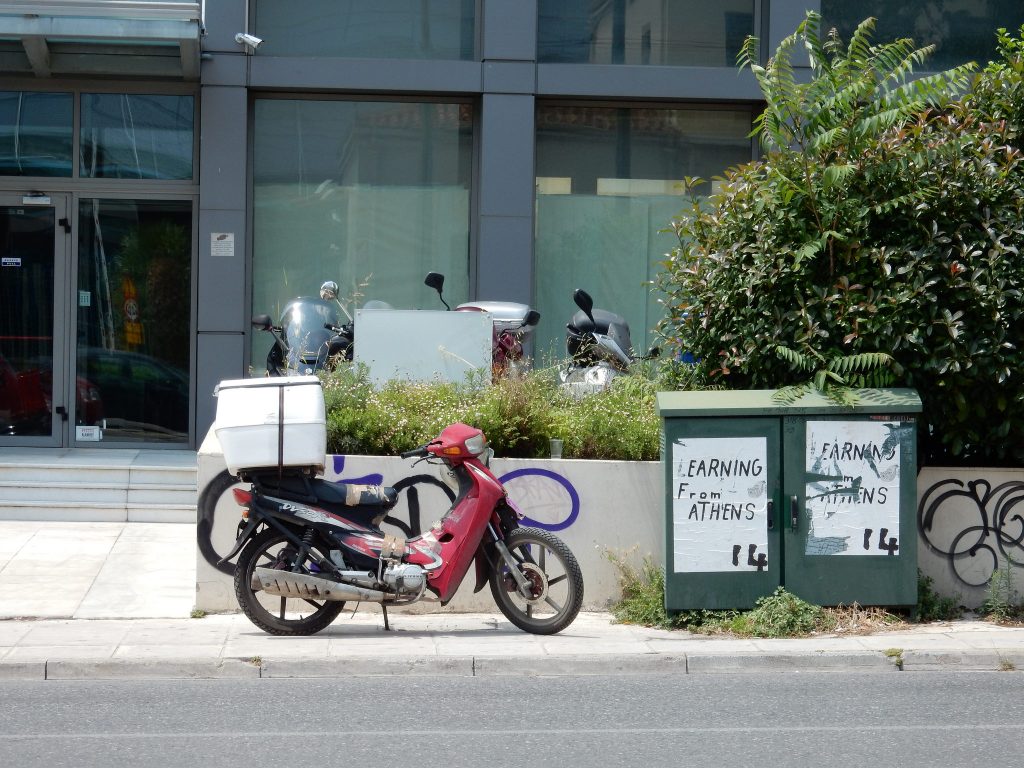 As posters featuring Documenta 14’s theme “Learning from Athens” have popped up all over the city, people have taken to scratching out the slogan’s first letter, leaving the words “Earning from Athens,” photo taken by the author in June 2017 the vicinity of the Benaki museum, one of Documenta’s exhibition venues. The closing words go to Cacao Rocks: “Who cares about Documenta? Cut the debt and open the borders.” *Documenta 14 runs in Athens from 8 April to 16 July 2017 and in Kassel from 10 June to 17 September, see here for programs and information.
0 Comments
Leave a Reply. |
AuthorHolobiont Production Team Archives
August 2019
Categories |
HOLOBIONT noun ho·lo·bi·ont (ˈhō-lə-bī-ŏnt) |
Website by Black Button Studio
|

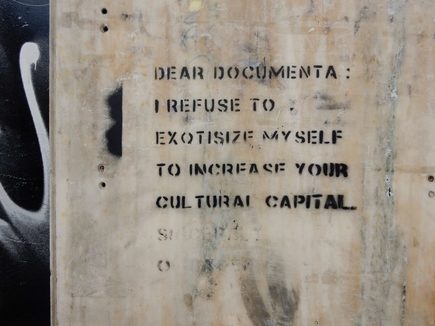
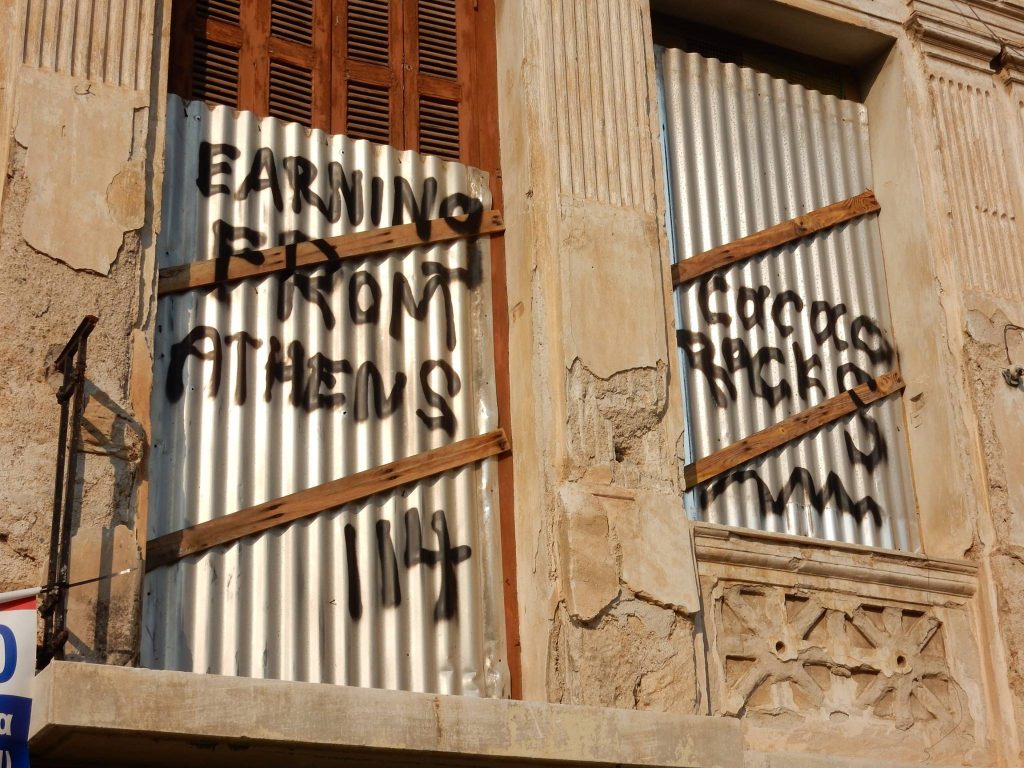
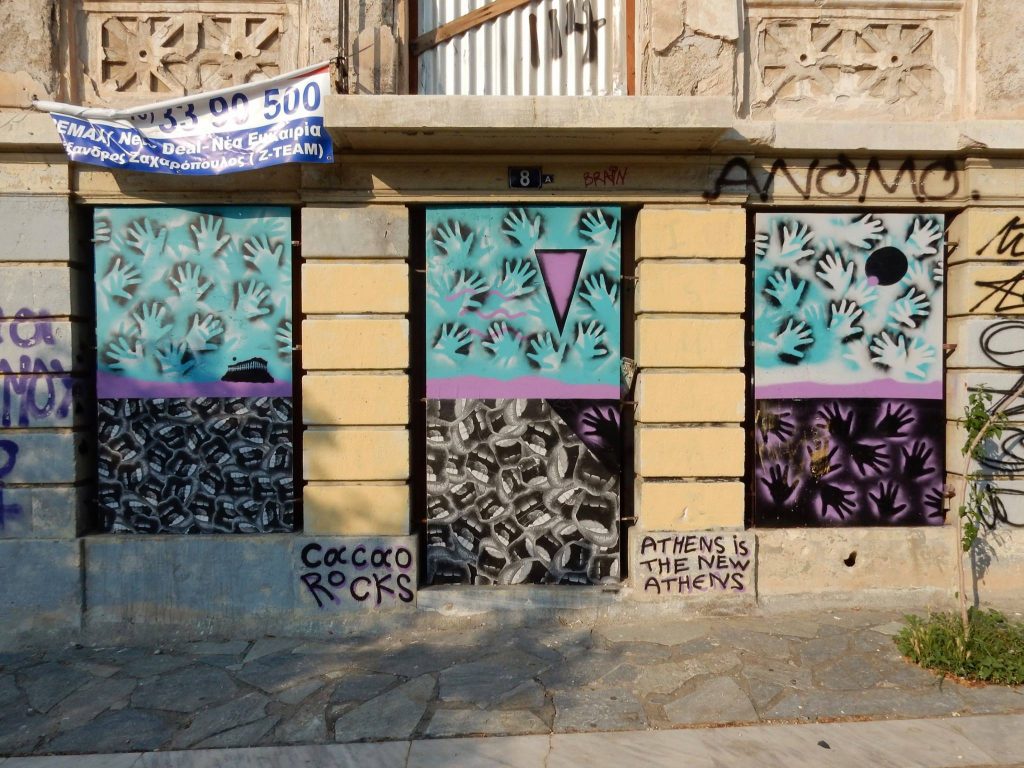
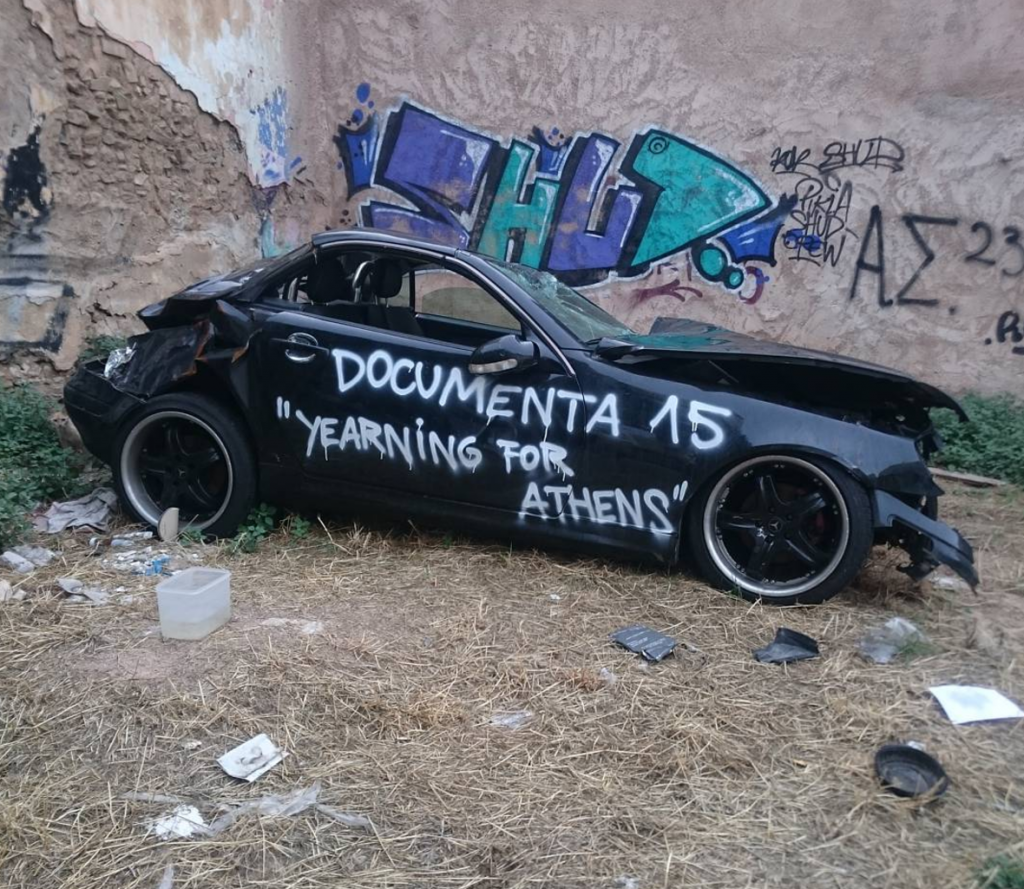
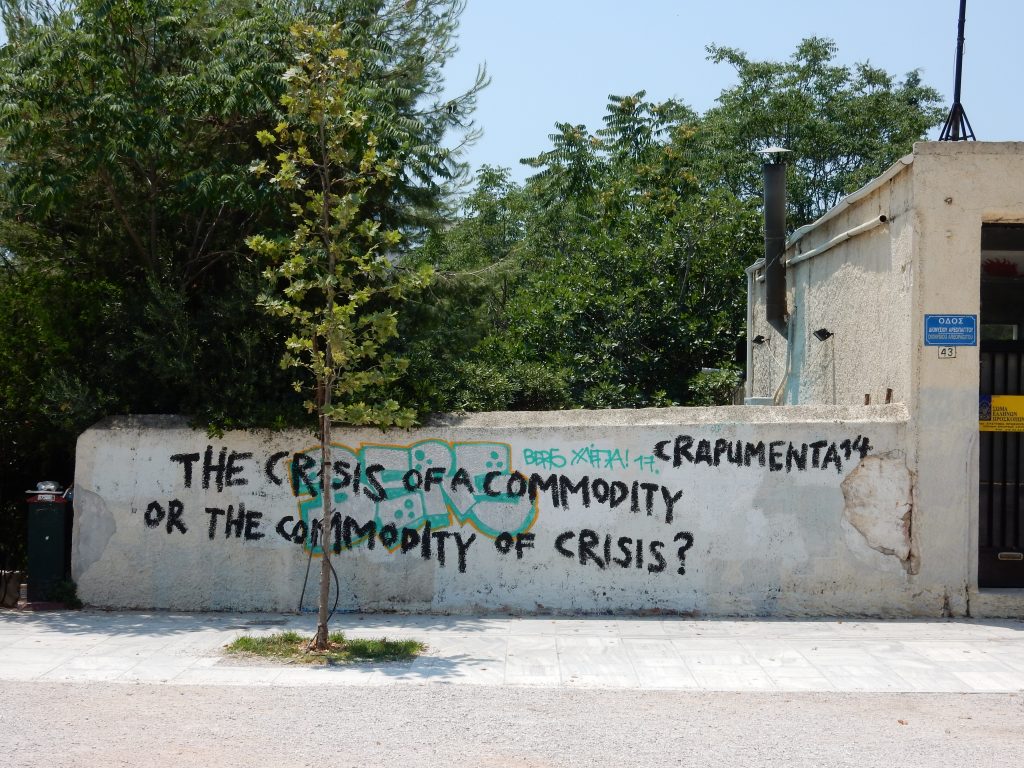
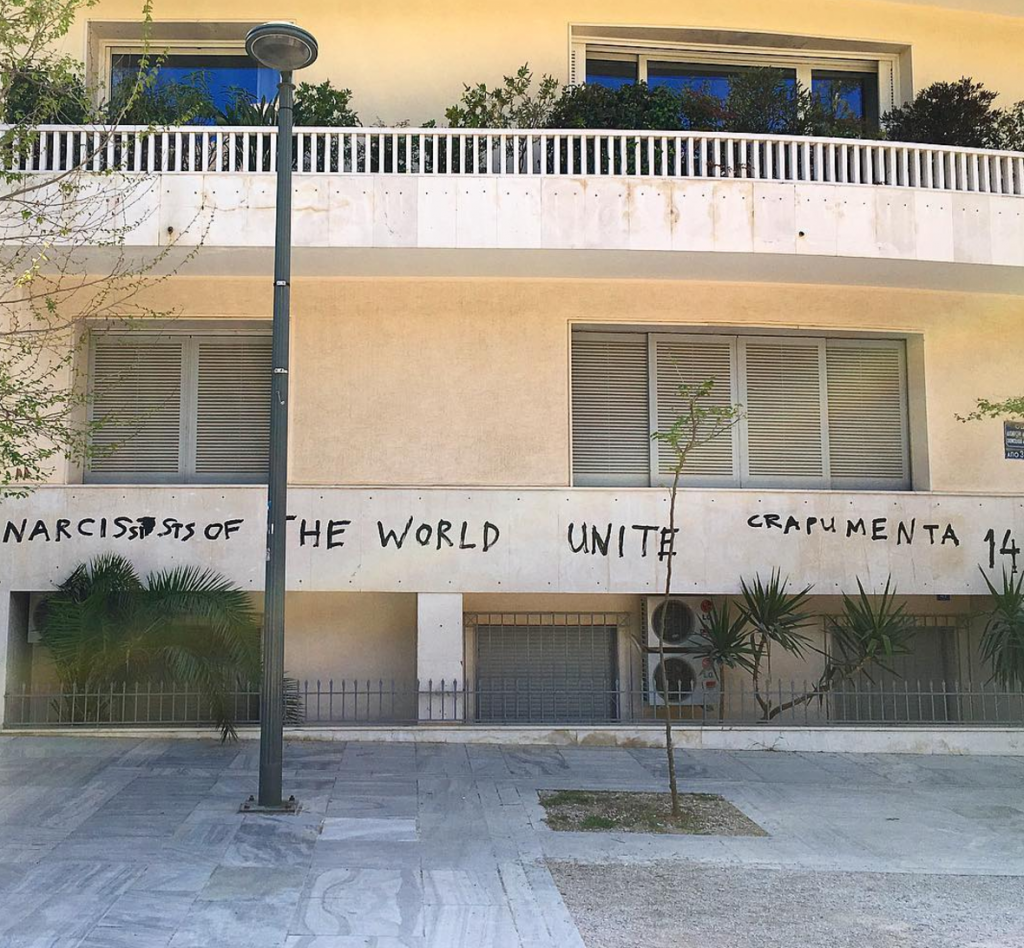
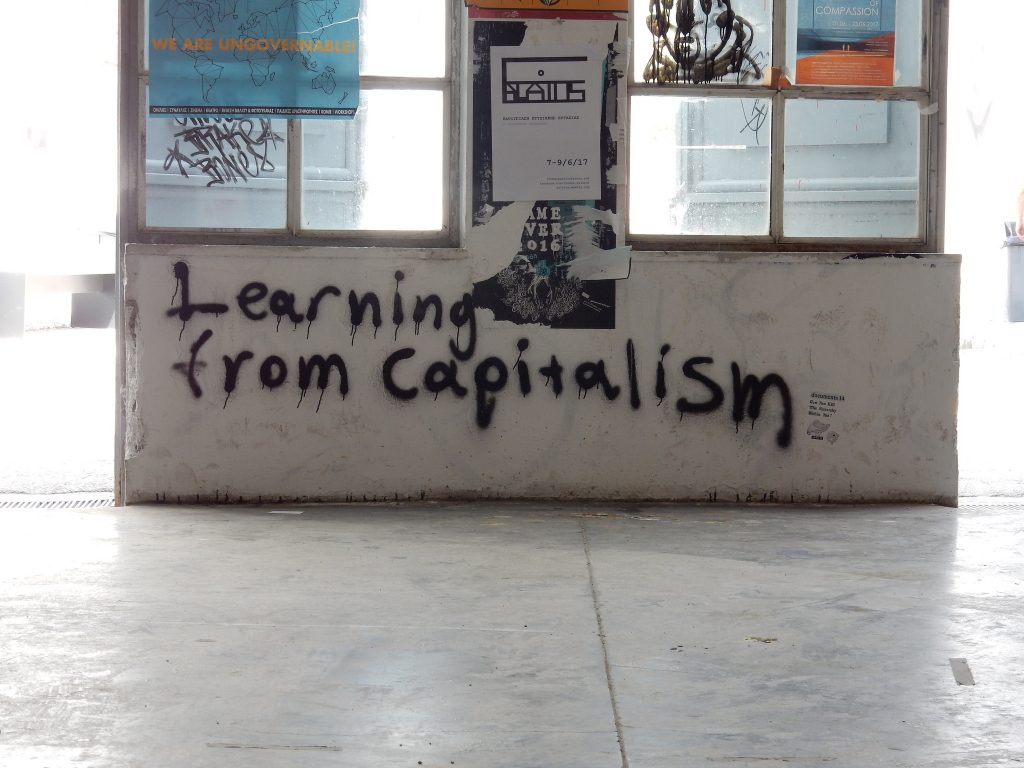
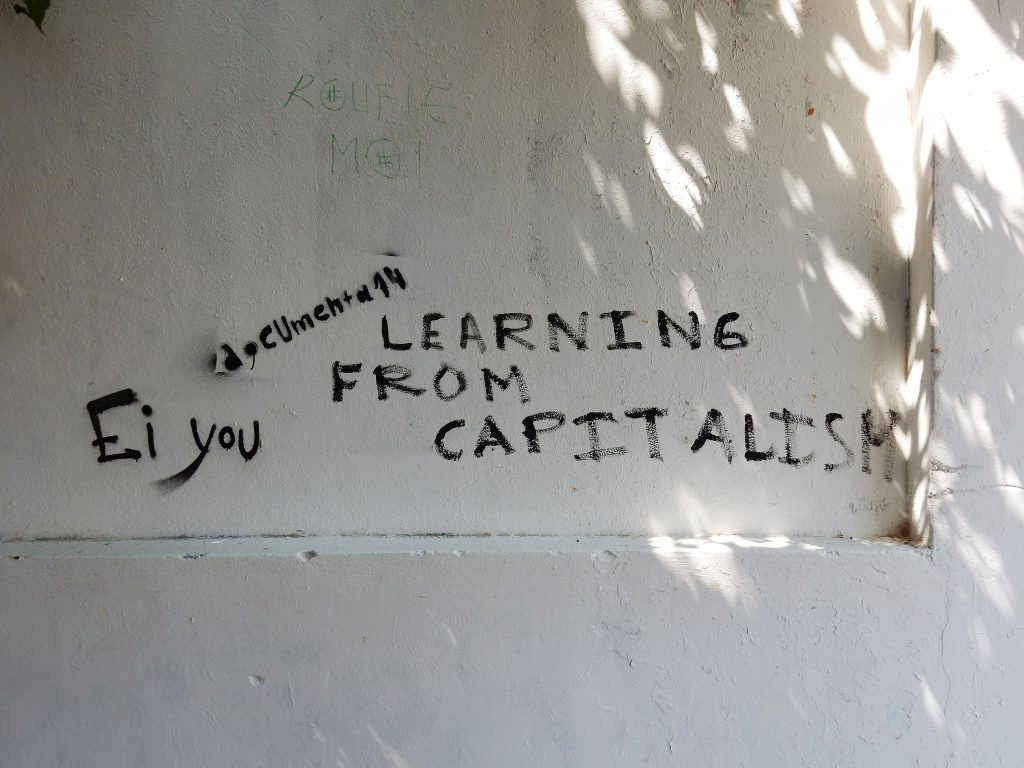
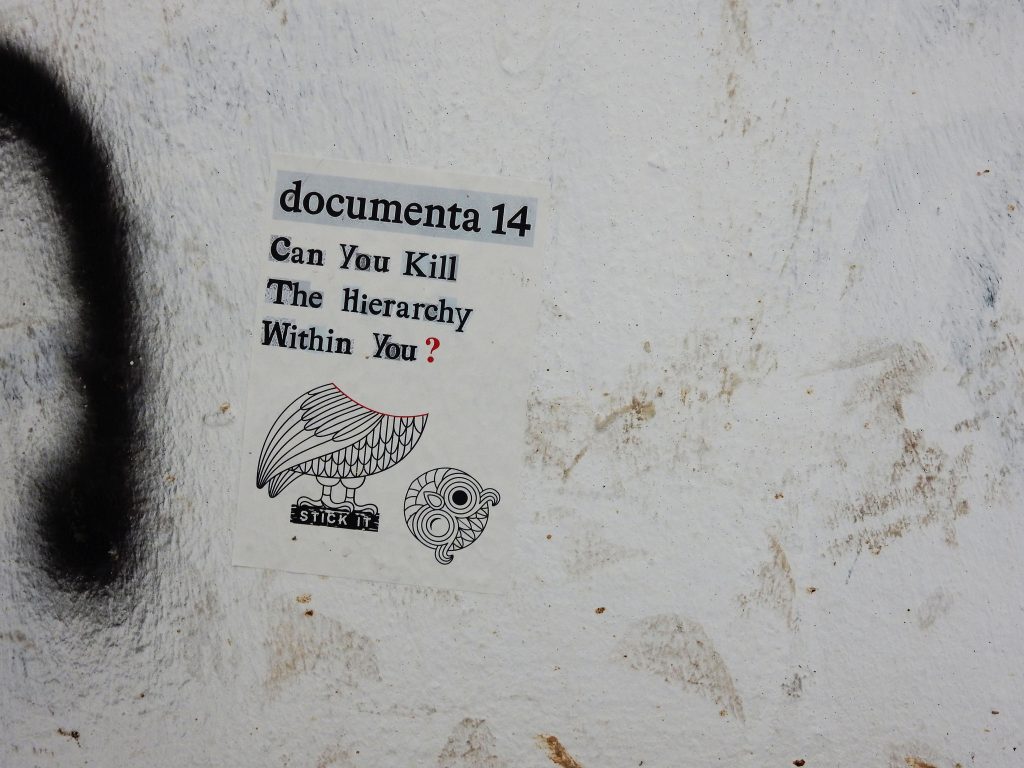
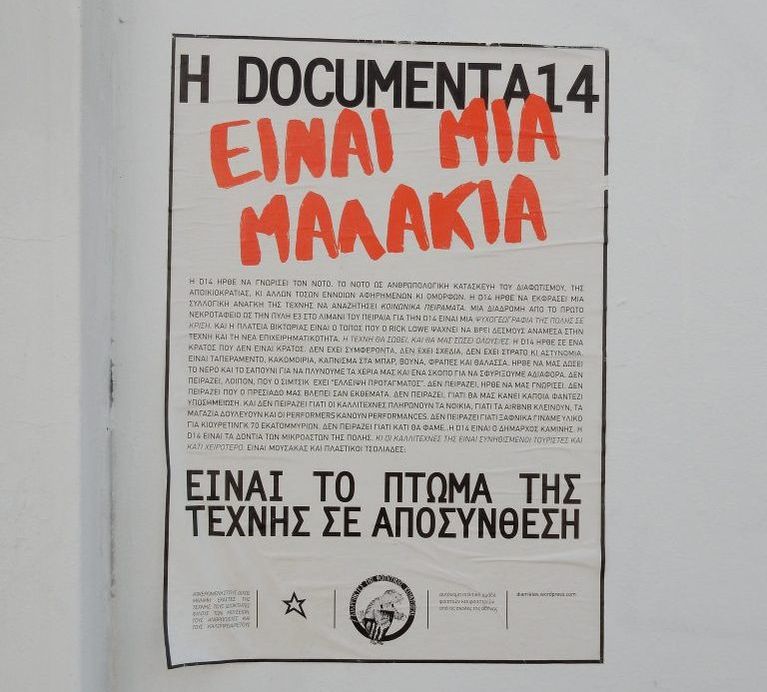
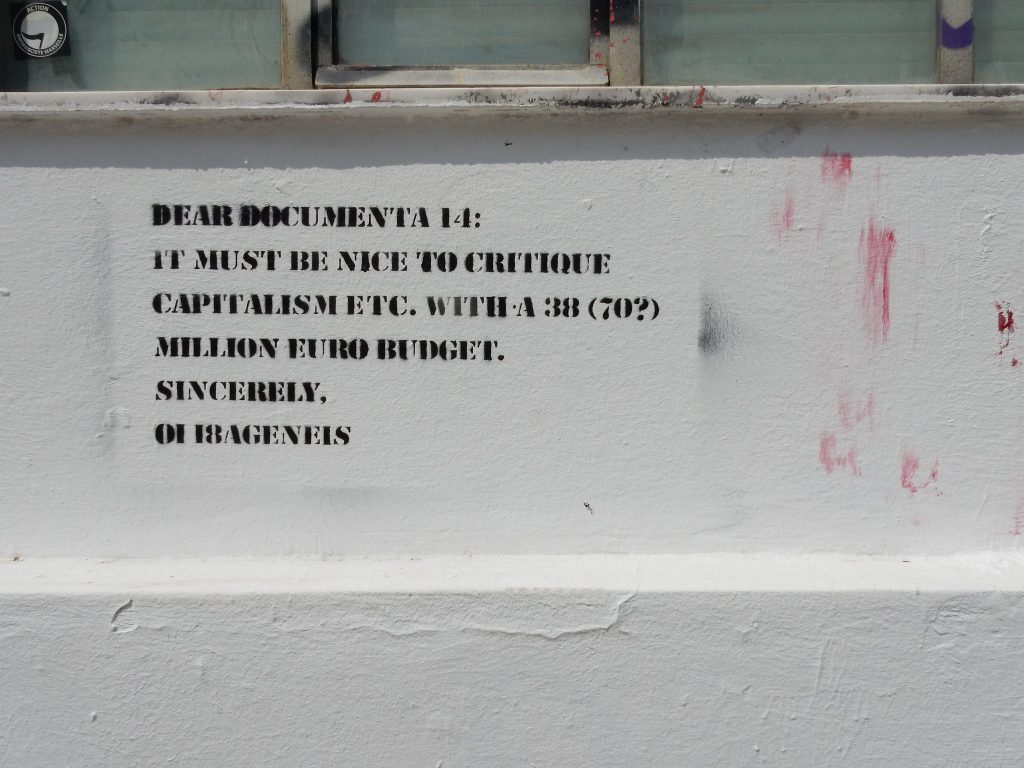
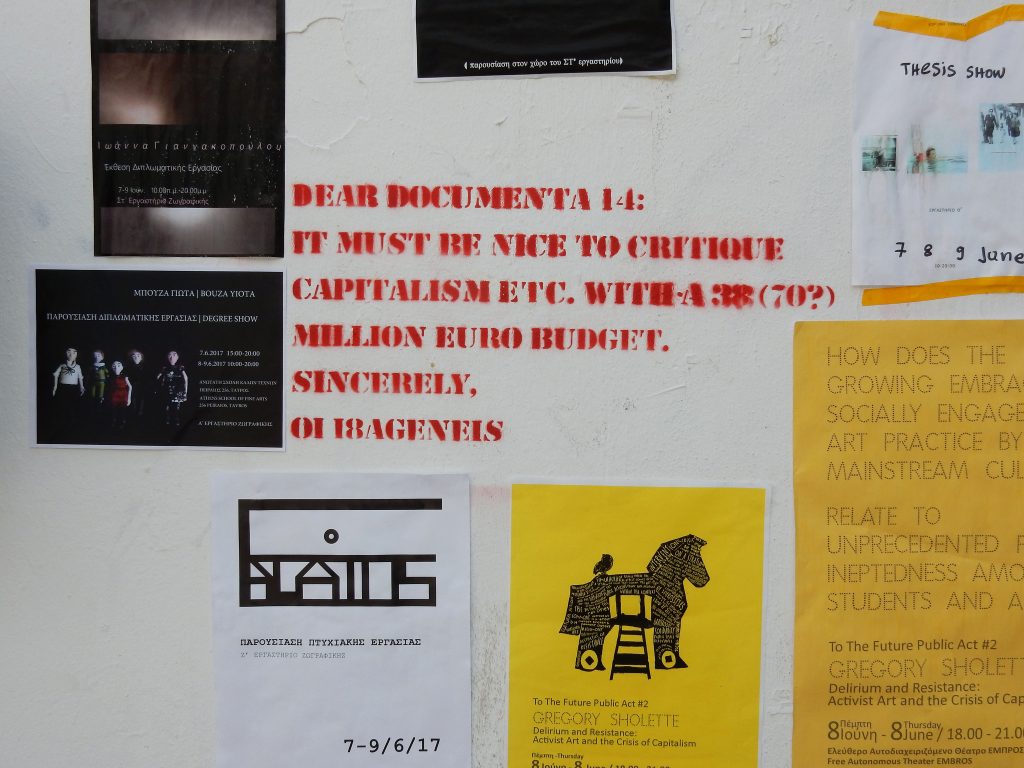
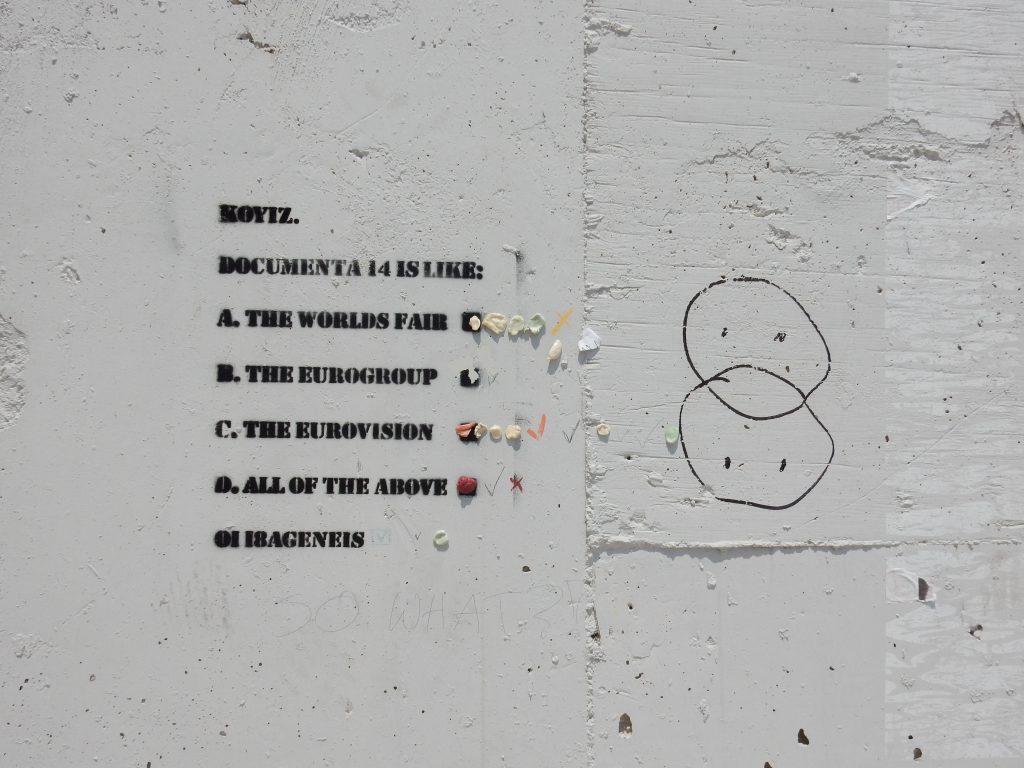
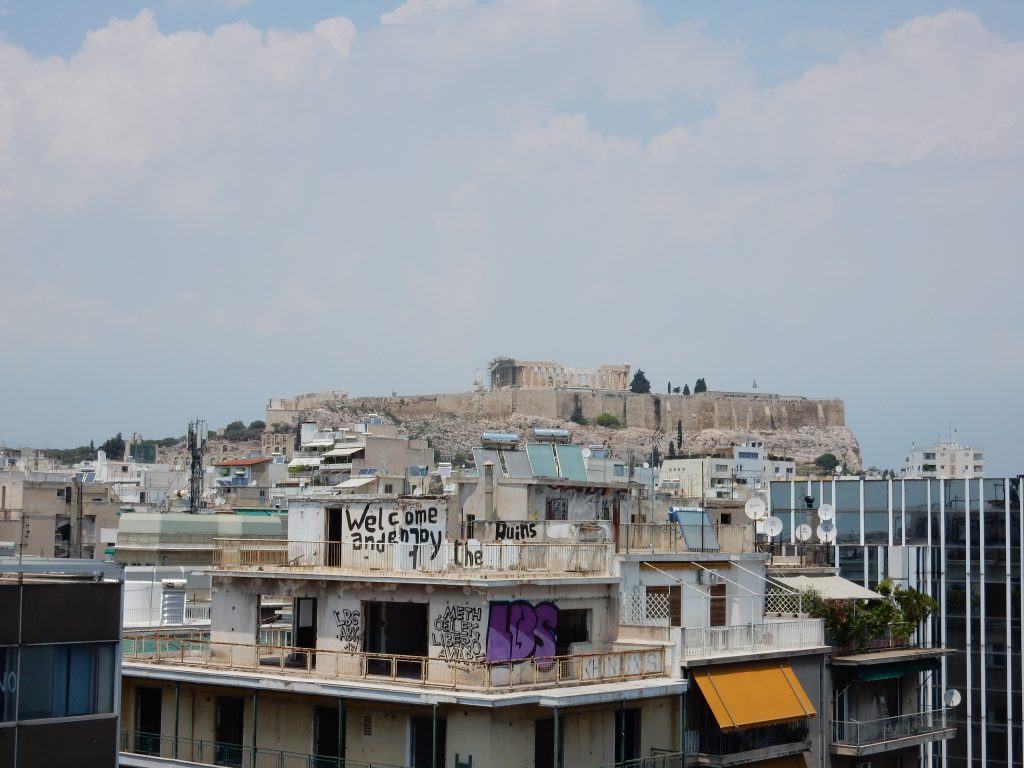
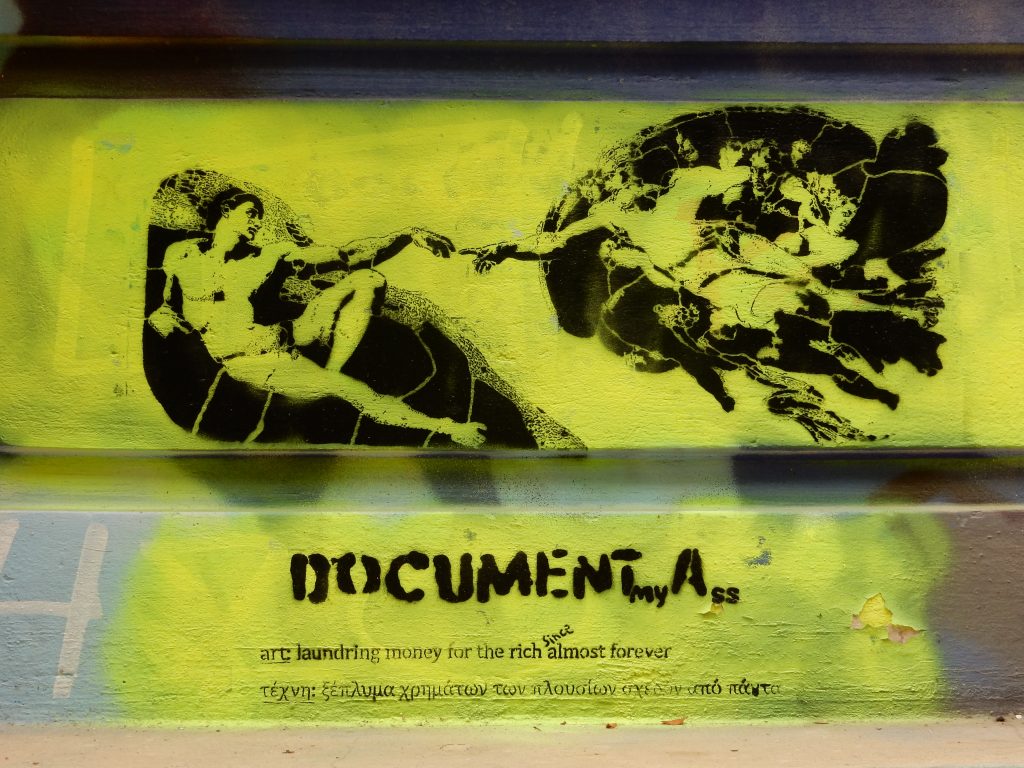
 RSS Feed
RSS Feed
